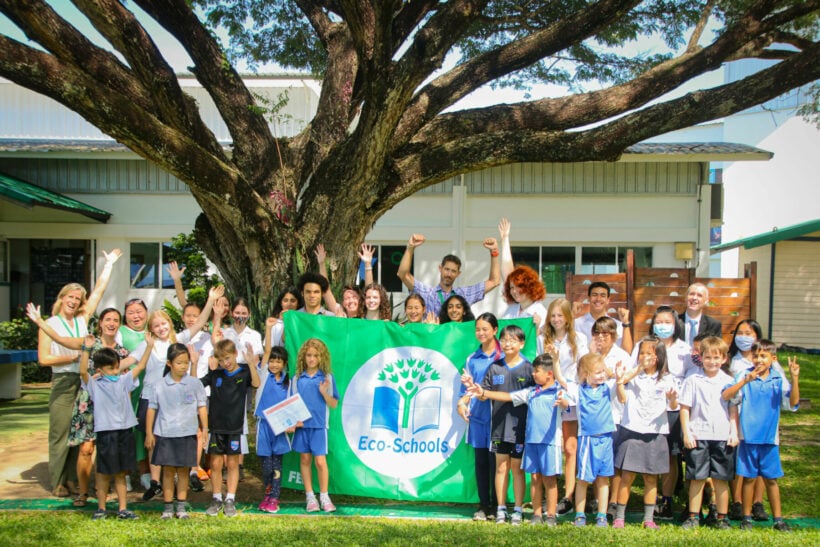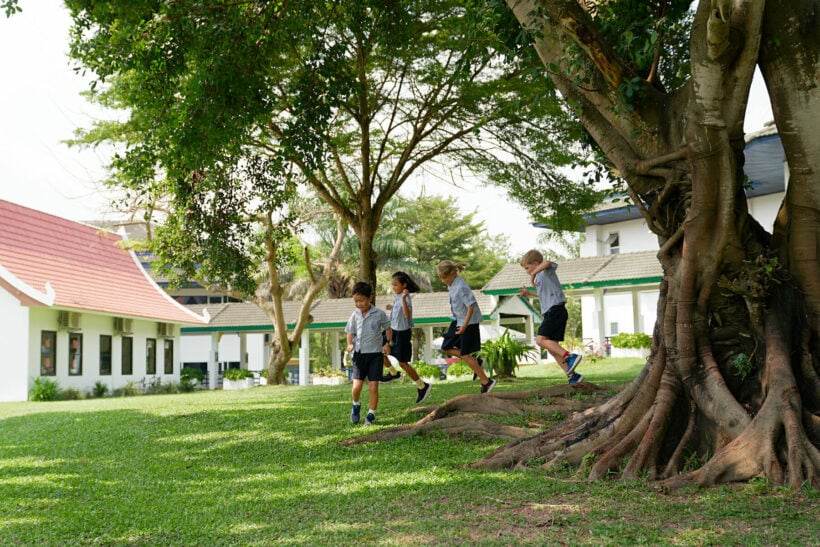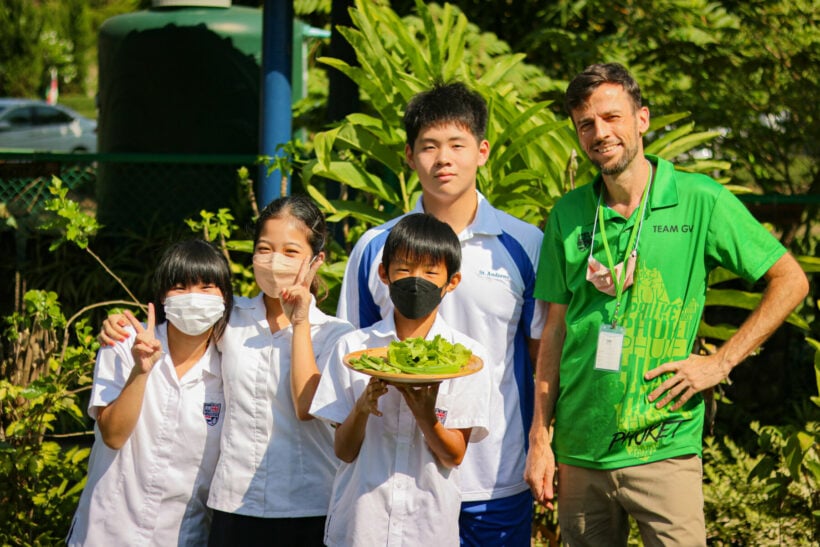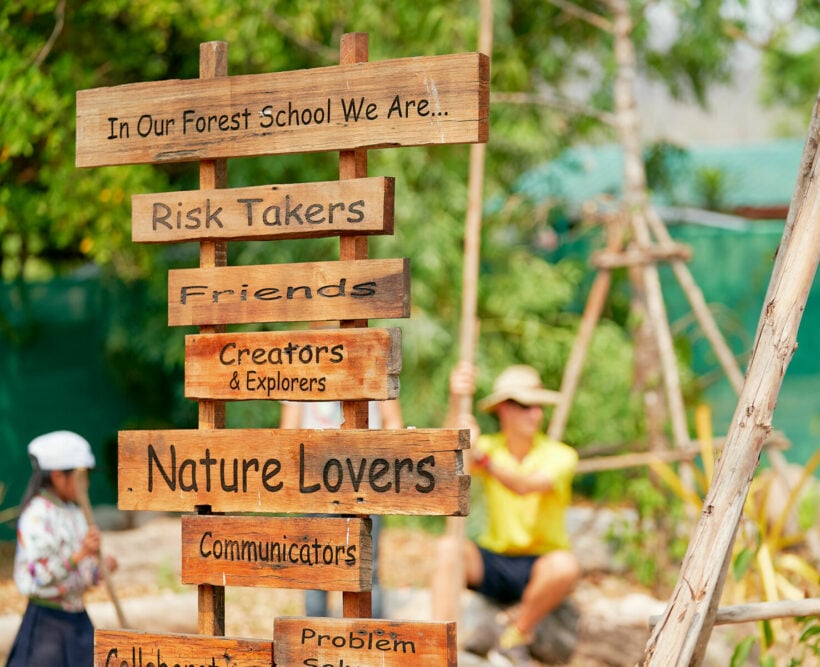St. Andrews International School, Green Valley, proud to achieve globally recognised Green Flag award

Sponsored
St. Andrews International School, Green Valley in Rayong, is a proud recipient of the globally-recognised environmental award, the Green Flag Eco-Schools Award. The Green Flag, awarded by the WWF and part of the world’s largest sustainable schools’ programme, is the highest possible Eco-Schools award, recognising and celebrating the ecological achievements of young people within schools. It acknowledges St Andrews International School, Green Valley for their eco-literate educational philosophy and their commitment to youth-led climate action that drives towards a more sustainable future.
Hard Earned Achievements
St. Andrews International School, Green Valley was the 7th school in Thailand to achieve the Green Flag award. The prestigious award has made St. Andrews a globally recognised eco-school and among only nine schools in Thailand to have achieved it.
The school obtained the award in June this year, with the Green Flag presented to the school’s Eco-council on Tuesday, December 6. The school received the award from WWF’s Country Communications and Corporate Engagement Manager, Rungsima Kasikranung, who commented:
‘The Eco-warriors at St Andrews International School, Green Valley have shown excellent examples on how to take positive actions towards a sustainable future. Although the Green Flag is an exceptional achievement, the greatest achievement is the change that the students are making in the world.’

10 projects supporting the United Nations Sustainable Development Goals
In line with St. Andrews Green Valley’s emphasis on an eco-literate education, the school’s Eco-council, consisting of both students and staff within the community, have implemented over 10 eco-projects and conducted a full school curriculum review, ensuring that sustainable practices, an ecological understanding and a commitment to caring for the world are embedded into the day-to-day life of the school.
Each of the projects are linked to the United Nations Sustainable Development Goals, and seek to promote 10 areas: 1) biodiversity, 2) community gardening, 3) beach cleaning, 4) valuing nature, 5) sustainable food, 6) reducing, reusing and recycling, 7) green energy, 8) cycling, 9) afforestation, and 10) a green community.
Making use of the school’s facilities, which include an onsite forest school, biology pond and over 30 rai of tropical and spacious land, the projects included the development of community gardens in which the students plant and grow their own fruit and vegetables. These gardens, known as the Giving Gardens, contribute to a sustainable food cycle within the community, whereby the grown fruit and vegetables are used within the school’s own cooking practices or are donated to local charities within the community.

In addition, the students have also introduced green energy onto the school site through solar panels and a student-designed irrigation system which uses solar energy to water the community gardens.
The school is also giving back to the environment in other ways, including an afforestation project which looks to introduce more healthy trees into the environment. Seedlings grown in the school’s onsite tree nursery are nurtured by students and are later planted within the community. Not only this, but the school has also supported a mangrove planting project which has reintroduced mangroves back into the ecosystems of local islands.
Other projects within the school also include the composting of food and plant waste, recycling of plastic to create living plant walls and eco-brick furniture, and the promotion of a healthy and sustainable outdoor lifestyle. Let’s not forget about the cycle paths in and around the school campus, and the Forest School where students learn about the biodiversity of the campus and how to take care of it.
‘As a school, we are committed to developing the next generation of future changemakers – students who are actively engaged as leaders within their community. The Green Flag Award, therefore, is not the end of our journey; it is merely the beginning. We are immensely excited for what the future of our school looks like as we lead the way in eco-literate education in Thailand’
– Charles Grayhurst, Head of School

Latest Thailand News
Follow The Thaiger on Google News:


























